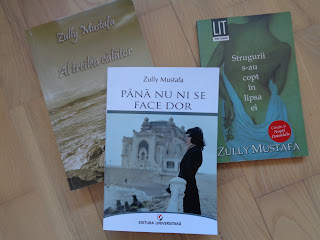While reading Zully Mustafa’s new novel one cannot feel but the strong and endearing smell of the sea. From the very beginning, the words seem to do more than merely describe, and help the reader smell and feel the presented sceneries. The salted taste of the agitated sea is an image that constantly appears in the mind of the reader, amongst waves of memories about places, people, feelings, dreams and hopes or uneasiness.
And even
though the reader is carried through small rooms that serve as chapters in the
book, the writer actually unravels a universe more complex, where the past and
the future come together in order to make peace and to draw conclusions and
lessons of wisdom.
There is
beauty in the way Zully uses her words so that the reader finds it impossible
not to genuinely feel the storyline, while also remaining connected to their
own reality. And this reality can be easily compared with the one from the
story in order to help the reader embrace the lessons from it.
To my mind,
this novel only has one character, and it’s not a human being. Memories,
regardless of the time or the place or the people evoked by them, are the focus
of the novel. Also, by means of a game of reflections in the mirror, to alter
or not the form of the memories, the writer creates a claustrophobic feeling in
order to force the reader to get courageous enough and carefully analyse the universal
emotions reflected in the mirror.
I dearly recommend Zully Mustafa’s new novel and I give you below a paragraph to ponder upon:
‘This is what it means to have memories, and they become even more precious when friendships are
ended.
...
Take a pen or a ball point pen, or a quill,
or anything you want, and write: Loneliness, even the greatest loneliness, not
only brings monsters, but it also brings wisdom, and passion, and tenderness,
and forgiveness. Next time, if you have more time, maybe we could go together
and see the sea. I also miss it, too.’

No comments:
Post a Comment